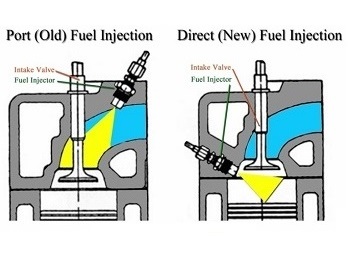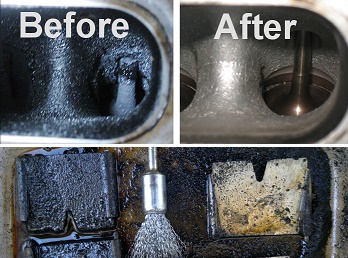deCarbon Cleaning Specialist
Due to modern unburned hydrocarbon regulations, vapors from the crankcase are usually vented into the intake stream in order to prevent oil droplets from escaping through the exhaust. In a port injection traditional engine, these droplets are washed off the neck of the intake valve by a relatively constant stream of fuel. In a direct injection engine, the gasoline doesnn’t touch the intake side of the valve. As a result, the droplets have a tendency to bake onto the valve and cause significant carbon deposits causing a reduction in performance, rough idling, difficulty starting and eventually bad sealing of the valves. To add to this effect, many advanced Direct Injection engines also include exhaust gas recirculation in order to lean out the combustion mixture and reduce in-cylinder temperatures for certain combustion modes. Since Direct Injection combustion has the ability to produce far more soot than premixed combustion (port injection), the problem is magnified.
Even more alarming is that these deposits can dislodge and damage other downstream components (turbochargers, catalytic converters, etc.). Manufacturers have added systems to capture these oil droplets and particulates, but no system is 100% effective. Cars with as low as 50,000km are affected and will benefit from the clean. Even diesel engines haven’t been immune to these issues.
Symptoms of carbon build up are typically:





